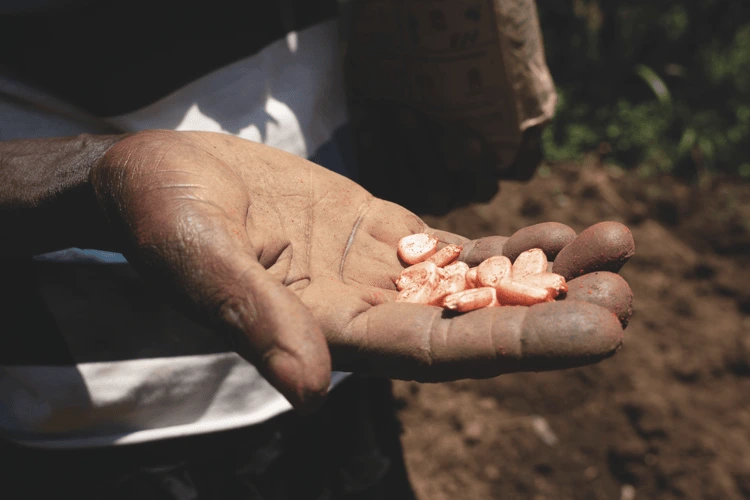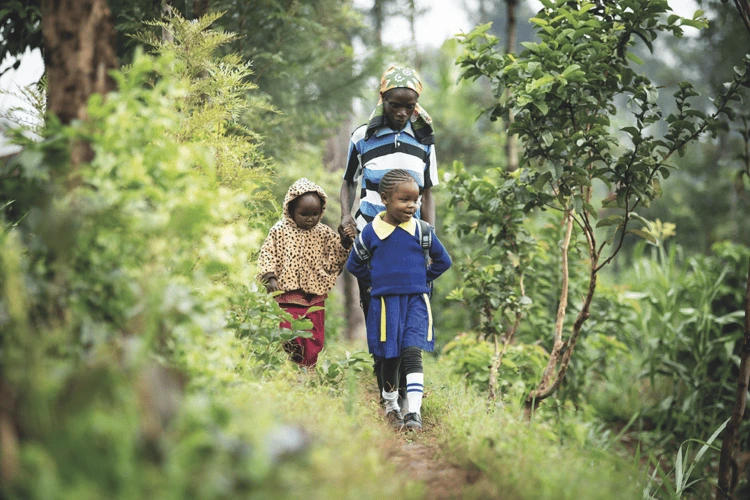
Major breakthrough in herbicides to control crop-devastating & parasitic ‘witchweed’ that has wreaked havoc upon sub-Saharan Africa’s crops
By
Catherine Wanjala has watched her fields of maize in Kakamega County, Western Kenya, yellow and wither. Her brother has abandoned his land. Like an estimated 40 million other farmers across Sub-Saharan Africa, the siblings are facing a huge threat to their food security – the result of a small, purple-flowering plant that shares the soil with their crops.
Enjoying this article? Check out our related reads:
Known colloquially as ‘witchweed’, Striga (Latin for ‘witch’) is a parasitic weed that has invaded nearly every country in Africa. While other crop pests – such as fall armyworm, desert locusts and grey leaf spot – come in waves, Striga destroys everything, year after year, leaving smallholder farmers with little food and little income.
‘Striga isn’t very receptive to herbicides,’ says Clare Baker, co-founder and director of The Toothpick Company, a social enterprise based in Kenya. Anecdotal evidence, she adds, suggests that this is becoming increasingly problematic across the region. Farmers are encouraged to hand-pull the weed, which produces between 20,000-50,000 seeds per plant.
But as Striga attaches to the root of its host (from which it leaches fluids and other nutrients), by the time it’s been spotted, the damage is already done. Even in fallow fields, the seeds can lie dormant for 10-15 years, until another farmer unwittingly plants a field of crops. Farmers like Wanjala have been left with little hope – until now.

In 2021, years of research led by David Sands – a professor of plant pathology at Montana State University, and Baker’s father – culminated in a newly approved herbicide, one derived from a naturally- occurring, soil-borne fungus. In a small lab in Kenya, scientists selected and cultivated a strain of a native Fusariumfungus – which they named FOXY T14 – that attacks Striga, causing it to wilt. By modifying the fungus, they were able to create a more virulent strain that, while harmless to humans and animals, will kill the weed and leave crops unscathed.
Toothpick’s bio-herbicide technology is one of the first to be made commercially available in the world. The original version of the product was delivered to farmers on toothpicks, a design from which the organisation derived its name. This method worked ‘perfectly’ when it came to tackling Striga, says Baker, but led to higher-than-ideal costs and a short shelf life. In 2023, a new wood dust-based seed coating containing the fungus was approved for use. ‘We’re now on a very positive, upward trajectory,’ says Baker. ‘It’s very exciting.’
Since the development of the new bio-herbicide, officially known as Kichawi Kill, and its introduction to her farm, Wanjala has seen her maize harvest increase almost 10-fold. She now has hopes to revive her brother’s farm land too.

The World Food Programme’s (WFP) innovation unit has been funding trials to help scale up the new weedkiller, with the hope it can begin to reach the estimated 50 million hectares of land plagued by Striga across sub-Saharan Africa, approximately 340,000 hectares of which are in Western Kenya. With WFP’s support, Baker says she wants to reach 110,000 farmers across Western Kenya by 2025 – and that’s not all. Trials are already underway in eastern Uganda, where a similar climate and soil mean that Kichawi Kill is likely to prove just as effective at tackling Striga. ‘From there, we’d like to expand into Ethiopia, Cameroon and beyond,’ says Baker.
While chemical herbicides have proved largely ineffective against Striga, their use is widespread against other weeds – reaching almost 1.9 million tonnes in 2022. This figure is estimated to rise to 2.4 million tonnes by 2027. In the Americas, the region with the highest use of herbicides, this reliance on chemical-based weedkillers is driving herbicide resistance and the rise of super weeds – glyphosate- resistant plants that are overrunning farmland and suppressing the growth of crops.

This over-use of chemical herbicides has severely impacted both human and ecological health, too. As of October 2024, American agrochemical company Monsanto has faced and settled nearly 100,000 lawsuits concerning Roundup, a glyphosate-based weedkiller linked to cancers and other diseases. Baker highlights the concerning reality: ‘Even when dangerous herbicides are banned in regions like the EU, they continue to be exported to low-income countries.’
Despite the recognised risks, viable alternatives have been scarce. ‘There hasn’t been a new class of herbicides developed in the past 20 to 30 years.’ Toothpick, she believes, can serve as a crucial starting point.
‘When discussing the future of weed management, people now often mention Toothpick, as we are the only ones offering a truly novel solution. And yes, there are risks when it comes to driving innovation – but we haven’t failed so far.’




